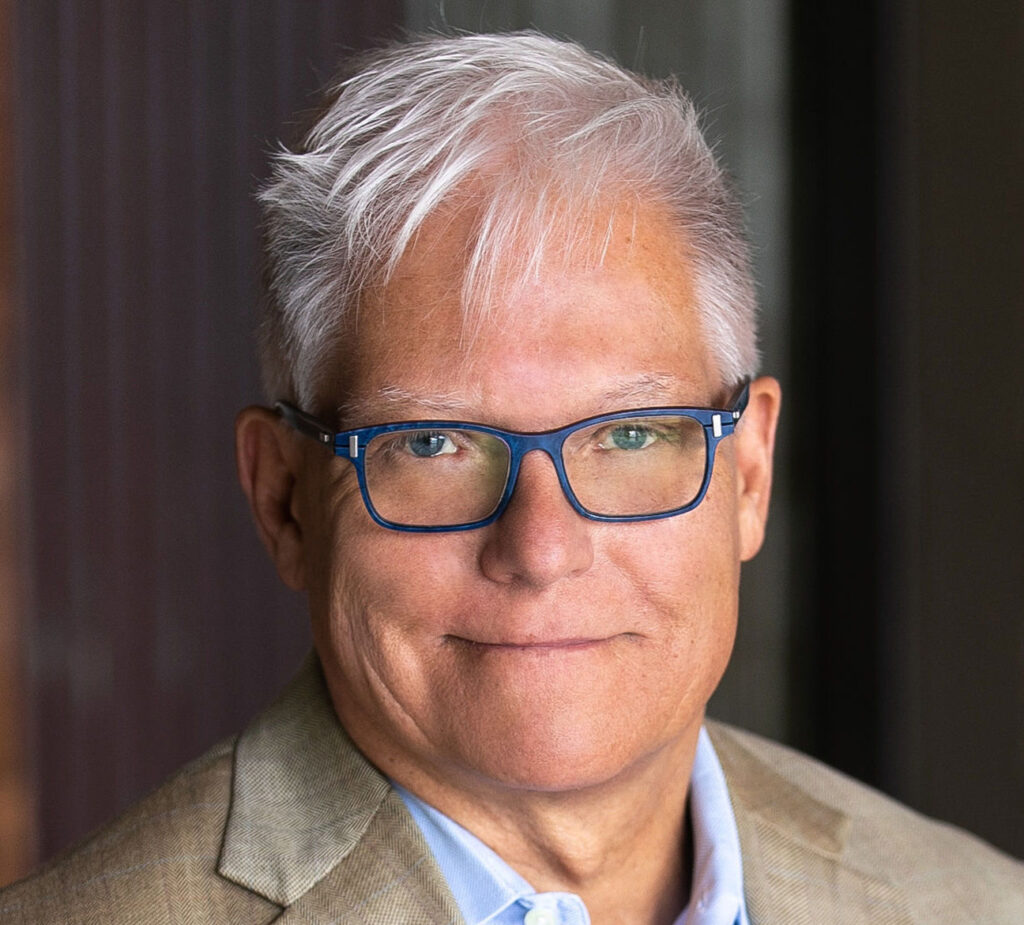News Based on facts, either observed and verified directly by the reporter, or reported and verified from knowledgeable sources.
Indian Child Welfare Act faces another constitutional challenge
 Canva Pro
Canva Pro
A case now before the Minnesota Court of Appeals revives debate over the nation’s 1978 Indian Child Welfare Act and a local version of the law — alleging that the legal statutes protecting Indigenous children, families and tribes racially discriminate against white foster parents.
Legal scholars familiar with the case describe it as the most significant challenge to ICWA since it was upheld last summer by a 7-2 majority of the U.S. Supreme Court. But the broad outlines are not unfamiliar to the countless defenders of the 45-year-old law ensuring that tribal children receive every opportunity to remain close to kin.
The appeal of a lower court ruling out of Martin County was filed by a couple who fostered Native American twins after their birth in 2022. In accordance with the federal ICWA law, the siblings — who are descendants of Red Lake Nation members — were eventually moved to the home of a relative who is also caring for their older sister. They have lived together, close to tribal kin, for the past year.
But the foster parents want the twins returned to their Fairmont, Minnesota, home, where they live with their seven biological children.
Mark Fiddler, the attorney for Kellie and Nathan Reyelts, said in an email that the couple was “harmed by ICWA by having medically fragile twins placed into their care removed from them based upon ICWA’s discriminatory preferences for placement with a relative they had never met.” Fiddler also said the children’s biological mother “was harmed by ICWA because the court disregarded her wishes” to have the infants remain with the foster parents. And “the children were harmed by ICWA by being removed from a loving home where they were thriving and attached to their caregivers.”
The Red Lake Nation, or Miskwaagamiiwi-zaagaiganing, defends the rights of the two siblings to remain with their mother’s cousin. (In some court documents she is identified as their aunt.) Attorneys for the tribe state in court filings that there have been no concerns about their well-being in her home. The foster care placement was arranged by the tribe last year and approved by Judge Michael D. Trushenski of the Martin County District Court, who described the relative’s household as being in the twins’ “best interests.”
The placement conforms with the Indian Child Welfare Act and the Minnesota Indian Family Preservation Act (MIFPA), both of which require that relatives or Indigenous people be prioritized as caregivers for foster children who are members of tribes or those who are eligible for tribal membership such as the twins, who turn 2 in April.
The Minnesota Attorney General’s office is backing the tribe to defend “the constitutionality of MIFPA,” according to court filings.
“The best interests of an Indian child support the child’s sense of belonging to family, extended family and tribe,” Red Lake Nation states in its filing to the courts. And in the case of the twins, “the children have smoothly transitioned to their new placement. They’ve slept well, eat well and attended all of their medical appointments.”
The Reyelts have informed the court that the twins’ mother wants them to be her children’s foster parents. Court documents also state that she is “truly adverse” to the “sweeping constitutional challenges” raised in the foster parents’ appeal.
The Imprint is not publishing the name of the mother or her children to protect the family’s privacy.
Is ICWA ‘race-based?’
Fiddler’s two main targets in the pending appeals case center on the Indian Child Welfare Act and the 1985 Minnesota Indian Family Preservation Act, which strengthens ICWA provisions in that state. ICWA was upheld by the Supreme Court in June 2023 in the Brackeen v. Haaland case, and in 2013 in Adoptive Couple v. Baby Girl. Fiddler represented white adoptive parents seeking custody of Native American children in both of those cases; and in both, his clients finalized their desired adoptions.

But in the Brackeen case for which Fiddler served as co-counsel, the plaintiffs failed to overturn ICWA on the constitutional grounds they sought.
And their Supreme Court challenge left one key matter unresolved: Is ICWA a “race-based” law that discriminates against non-Indigenous foster or adoptive parents? Fiddler argues that it is, and thus it violates his clients’ equal protection rights under the constitution.
The 14th Amendment’s equal protection clause — originally enacted to protect Black people from discrimination — has since been more broadly applied to racial discrimination in any form. In the Reyelts’ case, Fiddler, a member of the Turtle Mountain Band of Chippewa Indians, describes the white foster parents as the victims. Their appeal of the lower court’s ruling to place the children with tribal kin is based on what Fiddler described as ICWA’s “blatant racial preferences.”
Hundreds of tribes, Indigenous rights activists, child welfare leaders and state attorneys general have fought to preserve the 45-year-old ICWA law, enacted to repair harm caused by the U.S. government’s centuries-long assault on Indigenous families.
ICWA defenders strongly object to any characterization that it is a law based on racial preferences. They maintain that it is instead an agreement between the U.S. and tribal governments that are sovereign nations with significant interests in their citizens.
Race-based challenges to ICWA are “fundamentally wrong,” Shannon Smith, the executive director of Minneapolis-based ICWA Law Center, told The Imprint. “ICWA is based on the political relationship between a child and their tribal nation.”
The Indigenous twins’ journey
The toddlers at the heart of the recent ICWA challenge came to the attention of child welfare authorities after they were born in April 2022. According to court records, their mother tested positive for drug use at the hospital and admitted to using heroin and methamphetamines during her pregnancy. In an emailed statement, the Reyelts said one of her babies was released to them from the hospital 11 days after being born. The other twin left a nearby neonatal intensive care unit for the couple’s home about five weeks after birth.
Kellie Reyelts has a master’s degree in education, and Nathan Reyelts is a physician’s assistant at Dulcimer Medical Center. Married since 2008, the couple live in Fairmont with their biological children, and are active members of their church. Since 2010, they have provided emergency and respite care for more than 30 children from Martin and Faribault counties. The couple state that they are “very active in all their children’s sports and extracurricular activities, enjoy spending time outside on their acreage, gardening, bee keeping, and spending time with friends and family.”
Court records show that shortly after the twins were placed in the Reyelts’ home, a qualified expert witness for the Red Lake Nation said the siblings should be placed in a “culturally appropriate” foster home until they could move in with relatives or a foster home approved by the tribe.
A year and a half later, Red Lake Nation notified Martin County that it intended to remove the children from the Reyelts’ home and place them with their mother’s cousin, Rayjean French, a tribal member raising the twins’ older sister. The Reyelts filed a motion to intervene in the foster care proceeding, arguing in part that the mother of the children wanted them, not a relative, to care for her children. But the placement change to French was nonetheless approved.
Since then, the twins have thrived in her home, their court-appointed guardian ad litem (GAL) informed the court.
Legal filings also state that French “began the process of enrolling the children with their Tribe. They have attended tribal events and are able to live in the same home as their other sibling.”
The judge’s order also notes that “while the children were in the Reyelts’ care, they did not attend a single tribal event. They never met their older sister or many of their other extended family members.” The order dismisses as “unfounded allegations” statements that their relative did not take the toddlers to medical appointments, noting “there have been no concerns raised about Ms. French’s home or ability to care for the children.”
Judge Trushenski ruled that the twins should remain with their mother’s cousin, which afforded them the quickest path to finalizing their child welfare case, he concluded.
The Reyelts appealed this decision on Nov. 20, 2023. They’re seeking to get the twins back by having the lower court order reversed or sent back for reconsideration.
They are asking for “standing” in the case, because they have cared for the twins in their home. And they object to the lower court overruling the wishes of the children’s mother, which they say was to have the twins remain in the first foster home and not be placed with a “blood relative.”
The Imprint could not independently confirm the mother’s wishes for her children.
In their emailed statement to The Imprint, the Reyelts also said they did not keep the children disconnected from their community.
“We discussed their culture with the ICWA appointed GAL at every monthly visit and created a cultural plan for the twins,” they said. When the couple brought the twins home from the hospital “we were told that no one, including the current relative foster care placement, or any other native relative, was able to take them.”
Who ‘stands?’ in ICWA court cases
To be granted “standing” in legal cases, plaintiffs must have suffered a real or threatened injury caused by the defendant. What’s more, the harm caused must be reversible — or “redressable” in legal terms — by a favorable court decision: there must be something tangible the courts can repair or address.
In the Brackeen case, the Supreme Court did not rule on whether the adoptive parents were discriminated against based on their white race — the justices did not grant the adoptive parents standing because they failed to state a claim that could be “redressed” by the court.
Yearslong efforts to dismantle ICWA
Attorney Fiddler has long described his legal work as not only defending the rights of non-Native foster families, but the rights of Indigenous children as well — kids he says are too often unfairly removed from otherwise safe and caring homes. He has challenged ICWA in state and federal courts throughout the country.
Dismantling ICWA on the basis of race has been a years-long effort by broader special interest groups as well. They include the Goldwater Institute, a conservative Arizona-based think tank that has argued against ICWA in court more than a dozen times, and Gibson Dunn & Crutcher, a corporate law firm that has fought tribes over land, water and gaming rights. Both parties provided legal support to the Brackeen plaintiffs.
In the Reyelts’ case, the Goldwater Institute has signed on to Fiddler’s brief, and the think tank’s legal counsel, Timothy Sandefur, has been added as co-counsel. Sandefur is a well-known ICWA critic who has repeatedly challenged its constitutionality. He represented Goldwater’s interests in the 2013 and 2023 Supreme Court cases supporting white adoptive parents’ rights.
Fiddler pushed back against critique of these backers in his cases.
“Who pays for the lawyers, who offers pro bono help, these are all issues that are red herrings if the idea is somehow the clients are mere tools for larger, more sinister interests,” Fiddler said in an email. “Our firm Fiddler Osband Flynn absolutely believes in the justness of the Reyelts’ cause. And any person or interest that supports us in this cause is a friend of ours, which is why we are proud to call Goldwater a friend in this (despite the fact I am a staunch liberal).”

Smith, of the ICWA Law Center, said the latest attempt at an equal protection argument represents yet another threat to ICWA. But while her direct knowledge of the case is limited, she also questions whether the foster parents will be successful in achieving standing in the case.
“Foster care is temporary and in the context of child welfare the intent is reunification,” Smith said. “In a child welfare proceeding, a foster parent is agreeing to serve a role to keep a child safe and well cared for while understanding the hope is the child is able to reunify with their family.”
Because of that, she added, “for the foster provider to have standing they actually need to experience their own harm — their standing is not justified in their belief that the child was hurt by not being with them permanently. Instead, they need to show they are harmed by not being able to permanently care for the child they agreed to care for temporarily.”
Coming tomorrow: An Imprint Q&A with Mark Fiddler, the Minnesota attorney who has spent much of the past decade fighting to upend ICWA.
